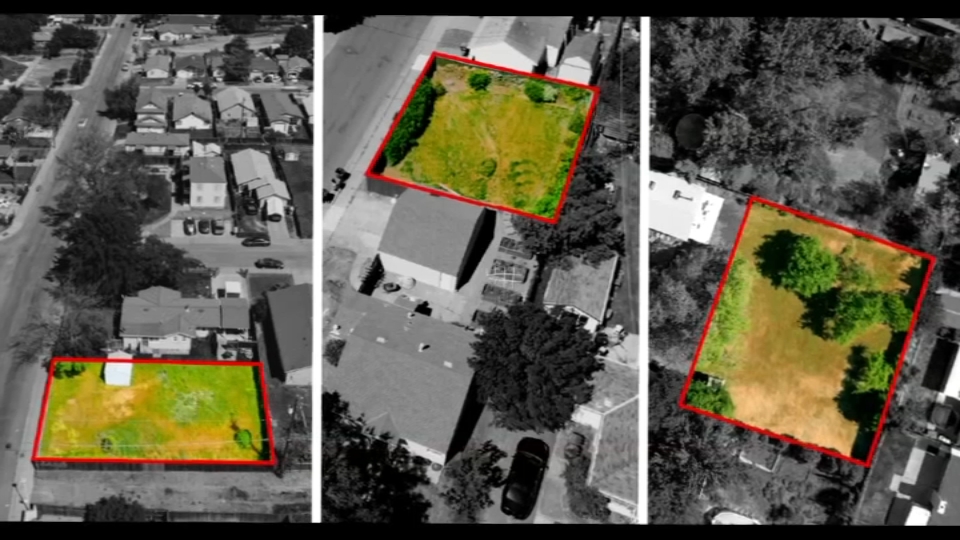In San Francisco, drivers are nine times more likely to be involved in an injury-causing crash compared to Waymo’s fleet of driverless vehicles, according to a new study Waymo released Wednesday that touts the company’s safety record and its recent milestone of logging more than seven million driverless miles. Despite the bold proclamations, some transportation safety experts believe the vehicles still haven’t logged enough miles on America’s roadways to definitively proclaim them as safer than human drivers.
After 7 million driverless miles, Waymo finds “statistically significant” reduction in crashes after comparing its driverless fleet with human drivers
“Every single safety technology that has been introduced – the seatbelt, the automatic braking stability control systems -- almost every safety technology that was introduced, up until now, has been met with criticism,” said Trent Victor, director of safety research and best practices at Waymo. “The criticism dissipates once you start seeing the effects.”
Waymo compared its own crash data against drivers in its two longest-running markets, San Francisco and Phoenix, and found humans were more than two times more likely to be involved in a car crash reported to police, and nearly seven times more likely to be involved in an accident resulting in some type of injury. The findings, according to the study, were “statistically significant.” Had humans been behind the wheel during those 7 million miles, instead of Waymo’s driverless vehicles, there would have been 17 more injury-causing crashes: 8 in Phoenix and 9 in San Francisco, according to estimates calculated by Waymo’s team of researchers.
Get a weekly recap of the latest San Francisco Bay Area housing news. Sign up for NBC Bay Area’s Housing Deconstructed newsletter.
“These vehicles are definitely safer than human drivers in the areas we operate,” Victor said “That’s exactly what we’re showing.”
Waymo’s fleet of robot cars have logged more than 7 million miles on public roadways across the Bay Area, Los Angeles and Phoenix since March 2019. The company, however, won’t disclose exactly how many driverless cars it currently operates. In August, it told regulators with the California Public Utilities Commission its San Francisco fleet totaled 250 vehicles. While the company says the number has since grown, it won’t say by exactly how much.
While Waymo touts safety record, Cruise remains under investigation for safety concerns
Local
The report’s release comes as Waymo attempts to distinguish itself from its main competitor, Cruise, which remains under two separate government investigations stemming from safety concerns about its vehicles. The company also recently parted ways with nine of its top executives and laid off about a quarter of the entire company – roughly 900 employees.
“We are committed to full transparency and are focused on rebuilding trust and operating with the highest standards when it comes to safety, integrity, and accountability,” a Cruise spokesperson wrote in a statement.
Public officials across San Francisco have also questioned whether self-driving cars could safely operate alongside humans as the technology continues to undergo testing and improvements.
“We want to be judged on our own merits,” Victor said. “We want people to see the work that we’ve been doing and our performance. And it is, of course, like anyone or any sport team, there is a big difference between sports teams. They don’t judge the whole league as the same, right?”
Even Waymo, however, acknowledges it’s difficult to accurately compare its driverless cars to humans, since its cars don’t operate in all the same places humans do. Their vehicles don’t drive on highways or in severe weather, like thick fog or heavy rain. Waymo also had to factor in that humans don’t always report their collisions to police. In hopes of having independent researchers confirm their findings, Waymo recently submitted its data to a scientific journal.
The ‘best evidence’ driverless cars are involved in fewer crashes
Carol Flannagan, a research professor at the University of Michigan Transportation Research Institute, was asked by Waymo to review the new research before it was submitted to a journal for review.
“This is the best evidence that [autonomous vehicles are] getting into fewer crashes,” she said. Flannagan, however, stopped short of proclaiming Waymo’s driverless cars as “safer” than human drivers.
“I'm not prepared to say ‘yes’ definitively to that statement,” she said. “I just don’t think there’s enough miles.”
While Waymo’s driverless vehicles have traveled more than 7 million miles, humans drive more than 3 trillion miles every year.
“The reason we care about how many miles there are is because the bad stuff that happens requires just a lot more miles,” Flannagan said. “As miles accrue, which they are, it's just going to get clearer and clearer.”
Watch our entire investigative series
- Part 1: Driverless cars seek San Francisco expansion despite worries tech is unsafe
- Part 2: CPUC votes to expand driverless car operations in San Francisco
- Part 3: San Francisco city attorney files motion to pump the brakes on driverless cars
- Part 4: Google's Waymo says insurance data shows its driverless cars are safer than humans
- Part 5: Hit-and-run driver strikes pedestrian, tossing her into path of Cruise car in San Francisco
- Part 6: Driverless trucks and robot deliveries promise fewer traffic jams than robotaxis
- Part 7: Cruise says its robotaxis can now better detect emergency vehicles
- Part 8: California DMV orders Cruise's driverless cars off the road
- Part 9: Driverless cars immune from traffic tickets in California under current laws
- Part 10: GM's Cruise lays off nearly 25% of its workforce
- Part 11: Waymo's driverless cars surpass 7 million miles, but are they safer than human drivers?
- Part 12: Cruise probe blames poor internet, bad leadership, and "flawed" decisions for company's woes
- Part 13: Driverless Cruise car accused of almost hitting 7 yr old after similar close call involving kids
- Part 14: Cruise offers to pay $112,500 in fines to settle claims driverless car company misled regulators
- Part 15: Uber Eats now uses Waymo Self-Driving cars to offer driverless deliveries
- Part 16: Bills aimed at closing traffic ticket loophole for driverless cars get initial green light
Contact The Investigative Unit
submit tips | 1-888-996-TIPS | e-mail Bigad
Contact The Investigative Unit
submit tips | 1-888-996-TIPS | e-mail Bigad




